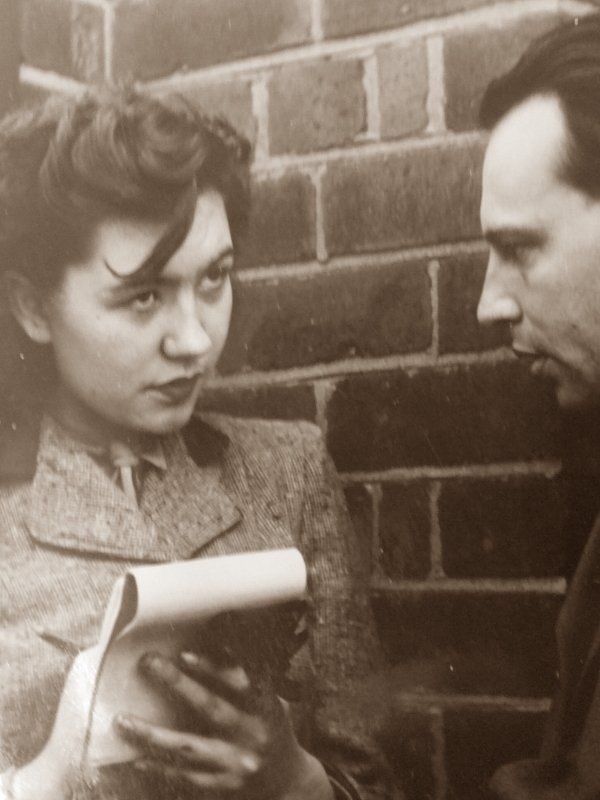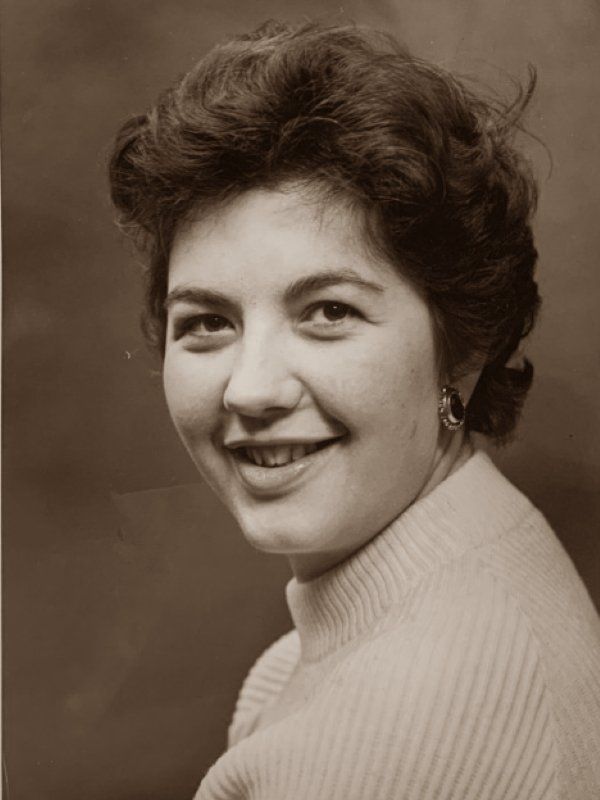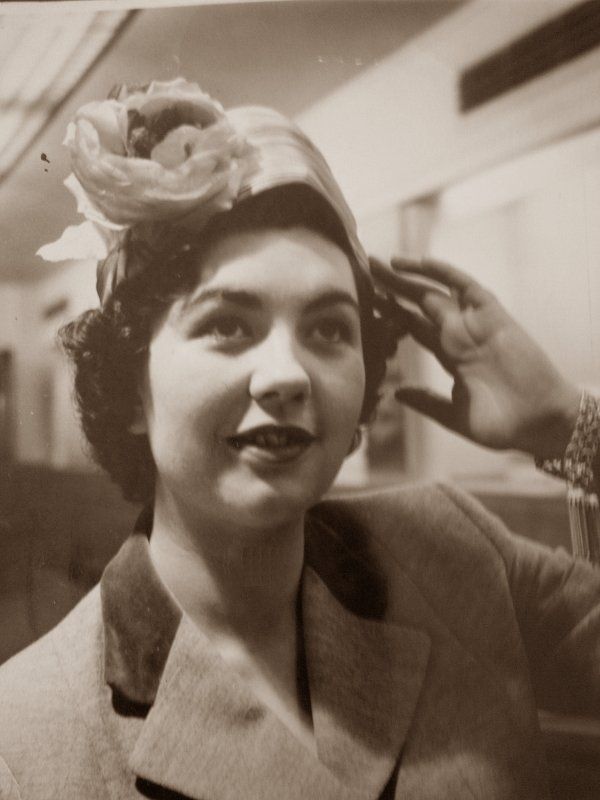Margaret Nicholas
Margaret Nicholas
Margaret ‘Maggie’ Pycroft was born on 7 December 1929 into a humble Yorkshire home.
She first set her heart on becoming a reporter after listening to a radio programme on Fleet Street, but had to leave school at the age of 16 to contribute to the household income. At this stage, there were few women journalists at that time, but with the help of her English teacher, she became a junior reporter on the Mansfield Chronicle.
Her early days were a far cry from her later fame on Fleet Street; as she did the parish rounds on her old bike to gather news of weddings, funerals, amateur dramatics and dog stories. But it wasn’t long before Margaret made it to The Sheffield Star, and in her new role she met various luminaries including Winston Churchill (during the ‘male only Cutler’s banquet, she sat with Lady Churchill in the press gallery eating sandwiches) and Sir John Barbarolli, conductor of the Halle Orchestra. She then made the move to the Manchester Evening News, where she interviewed Bob Hope, Noel Coward, Joyce Grenfield and composer Vaughan Williams. Then on the Daily Herald she covered the Munich Aircash, securing the only interviews with surviving members of the Manchester United Football team.
This scoop took her to Fleet Street, where she became Chief Feature, Home and Abroad for The Daily Herald. In the Middle East, she covered the UN refugee camps, interviewed the Jordanian Prime Minister (the day before his assassination), Israeli Prime Minister Golda Meir and Colonel Atif Majali, Senior commander of the Arab Legion, who threw her a birthday party! She always remembered the vivid response of the press corp to the Holy Land, describing tough journalists in tears beside the Jordon.
When she passed off a cockney bell bottom sailor as an officer at the Duke of Argyll’s ball at Inverrary Castle, with the aid of film idol Richard Todd, she was featured in a book on leading reporters of the day ‘Special Assignment.’
In 1960 she married Daniel Nicholas, a successful advertising man and former RAF pilot, and went on to have two daughters, myself and my younger sister Charlotte. At this stage she moved out of national newspapers, first to Woman magazine and a few years later, went freelance, when her and Dan left London to live in a 18th century cottage in North Buckinghamshire that they had been restoring.
Margaret adapted marvellously to country life, and went onto write a series of best-selling books for Octopus Books including The World’s wickedest Women and The World’s greatest Cranks and Crackpots, which she dedicated to her eccentric poet husband Dan.
In ‘retirement’ she succeeded Sir John Betjeman as President of the Cowper and Newton Society and Chairman of the Friends of the Cowper and Newton Museum, dedicated to preserving historical records of the lives of the poet William Cowper and John Newton, the slave trader turned curate and author of the world famous hymn Amazing Grace. She also continued to speak publicly about her life as a journalist and writer, and even in her late 70s was featured on BBC’s Woman’s Hour.
Margaret passed away on March 22nd 2012. A pioneering reporter to the end, she was able to articulate some of her extraordinary last experiences (recorded in detail in my memoir Sea Changed), providing a glimpse of a place that she described as ‘wonderful’ and ‘beautiful’. She also recognized and spoke to her mother, her beloved husband Dan and to Jesus Christ. One of her last statements, spoken with characteristic vigour, was that 'Richard Dawkins [the arch secularist) was wrong. There IS a God.' She left an enormous legacy of love and hope.



